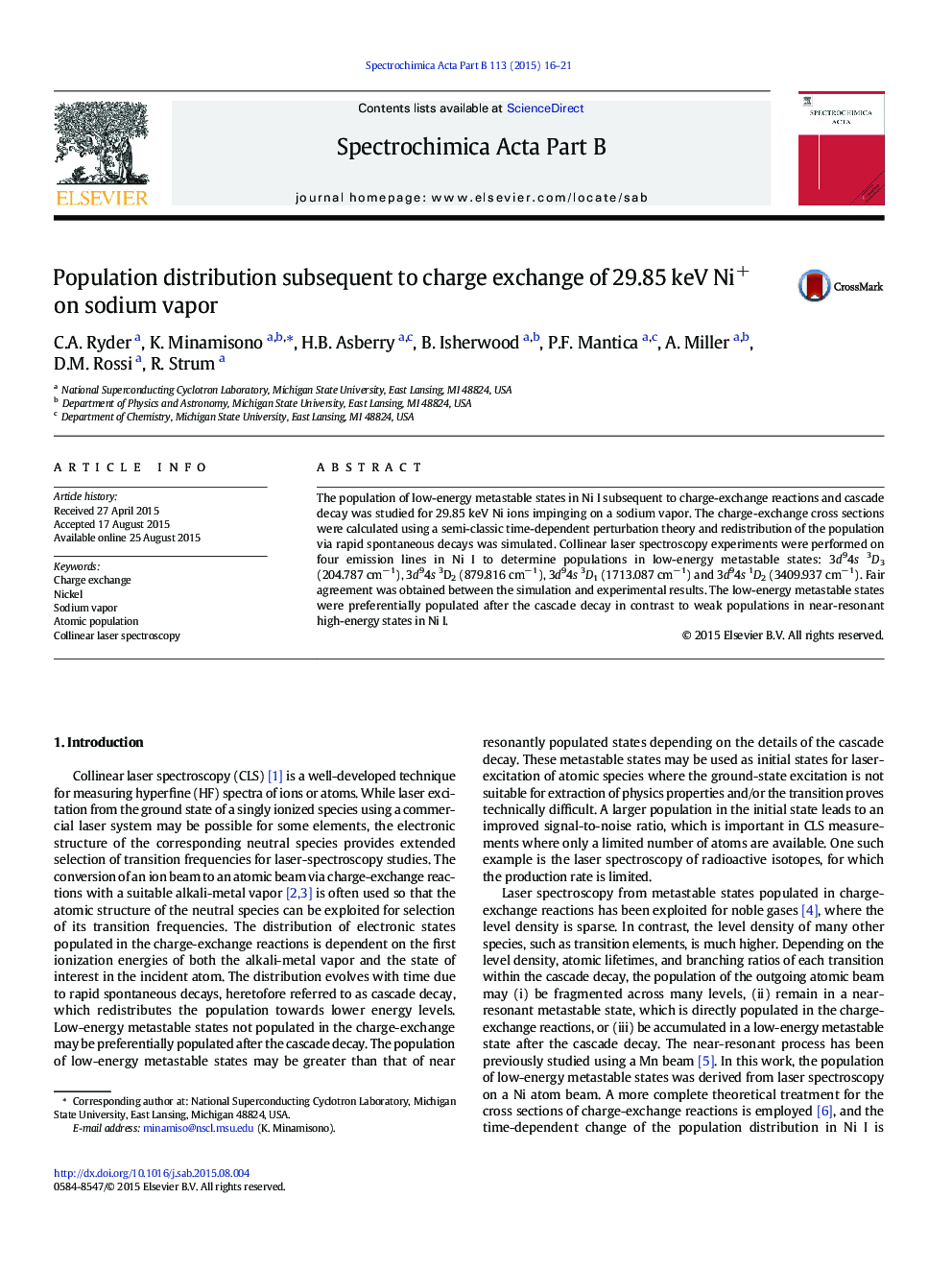| Article ID | Journal | Published Year | Pages | File Type |
|---|---|---|---|---|
| 1239470 | Spectrochimica Acta Part B: Atomic Spectroscopy | 2015 | 6 Pages |
•Low-lying metastable states are populated in charge-exchange of 30 keV Ni + on sodium.•Population distribution agrees with theoretical calculation and simulated results.•Obtained knowledge has an impact on low-rate radioactive isotope experiments.•The framework helps in planning experiments leading to new physics properties.
The population of low-energy metastable states in Ni I subsequent to charge-exchange reactions and cascade decay was studied for 29.85 keV Ni ions impinging on a sodium vapor. The charge-exchange cross sections were calculated using a semi-classic time-dependent perturbation theory and redistribution of the population via rapid spontaneous decays was simulated. Collinear laser spectroscopy experiments were performed on four emission lines in Ni I to determine populations in low-energy metastable states: 3d94s3D3 (204.787 cm− 1), 3d94s3D2 (879.816 cm− 1), 3d94s3D1 (1713.087 cm− 1) and 3d94s1D2 (3409.937 cm− 1). Fair agreement was obtained between the simulation and experimental results. The low-energy metastable states were preferentially populated after the cascade decay in contrast to weak populations in near-resonant high-energy states in Ni I.
